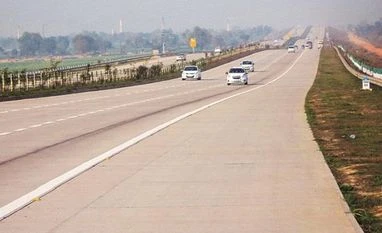As states in India look to restrict movement of people, highway toll operators are facing the heat. Fewer passenger cars now cross their entry points, while under-construction roads brace for labour and machinery shortage.
Toll collection and traffic movement is down 10 to 20 per cent over recent days, by sector estimates. This, experts and executives agree, will worsen in the weeks to come.
On Wednesday, the Union ministry of road transport and highways asked all states and Union Territories to minimise transport services and also refund fares if advance bookings are cancelled.
An official of the National Highways Authority of India says this is a force majeure situation — the term for occurrence of an event which is outside the reasonable control of a party and which prevents that party from performing its obligations under a contract.
“The pace of work will slow down. In terms of a direct impact, it would be from labour restrictions; indirect impact would be if essential commodities become a problem. If the labour cannot get essential food items, they would quit work and leave,” he explained. K P Maheshwari, chief executive officer for Adani Transport, put the sector's drop in traffic movement at toll gates at 10 to 12 per cent. He added: “At some toll plazas, the impact is yet to be seen. The main worry is if states move towards a lockdown; the hit on traffic would be huge.”
K K Mohanty, managing director for Gammon Infraprojects, puts the decline in traffic at 20 per cent and expects this to worsen.
In a UBS Global research report, issued on Tuesday, this country's mobility restriction was termed an intermediate one, stricter than in America. The report labels mobility restriction for countries in three categories — moderate, intermediate and severe.
Shubham Jain, senior vice-president at ratings agency ICRA, says: “So far the hit is mainly for passenger vehicles but commercial vehicles will also slow down with the hit on industrial activity. It is just a matter of time.” Commercial vehicles are the majority contributor to toll collection on national highways.
On toll collection, sector experts peg the hit at 10-15 per cent. “If you have any movement restriction, discouraging inter-city and intra-city movement and moving only essential items, there is bound to be reduction in toll collection,” said Jagannarayan Padmanabhan, director at CRISIL Infrastructure Advisory. He puts the decline in toll collection at 10-15 per cent on average across national highways.
Besides toll collection, construction will take a hit, since mobilisation of workers and machinery is not happening. Import of equipment will also happen at a slower pace and there will be an overall impact on the sector, say observers. Ongoing projects will be delayed and cast a shadow on infrastructure investment trusts and toll-operate-transfer projects as well.
Some recall the demonetisation says of 2017, when the central government had exempted vehicles from paying toll for a small period of time. “There is no long-term impact that we expect this to have for road companies. It will be similar to demonetisation, a temporary decline in toll collections and traffic numbers, followed by gradual recovery,” says Jain from ICRA.
Unlock 30+ premium stories daily hand-picked by our editors, across devices on browser and app.
Pick your 5 favourite companies, get a daily email with all news updates on them.
Full access to our intuitive epaper - clip, save, share articles from any device; newspaper archives from 2006.
Preferential invites to Business Standard events.
Curated newsletters on markets, personal finance, policy & politics, start-ups, technology, and more.
)